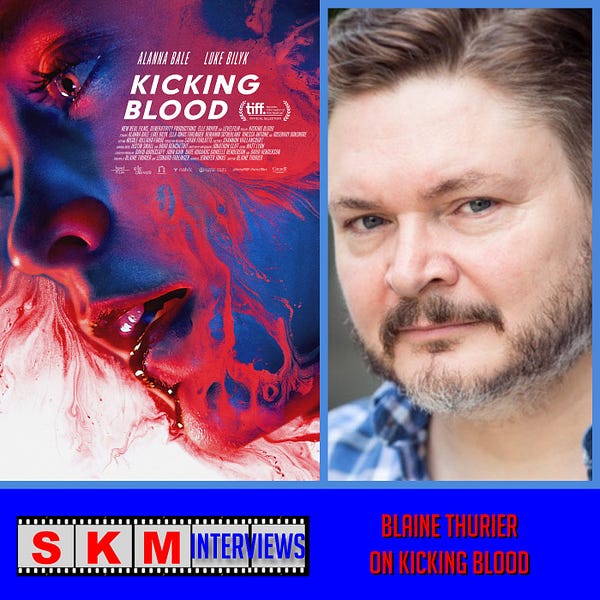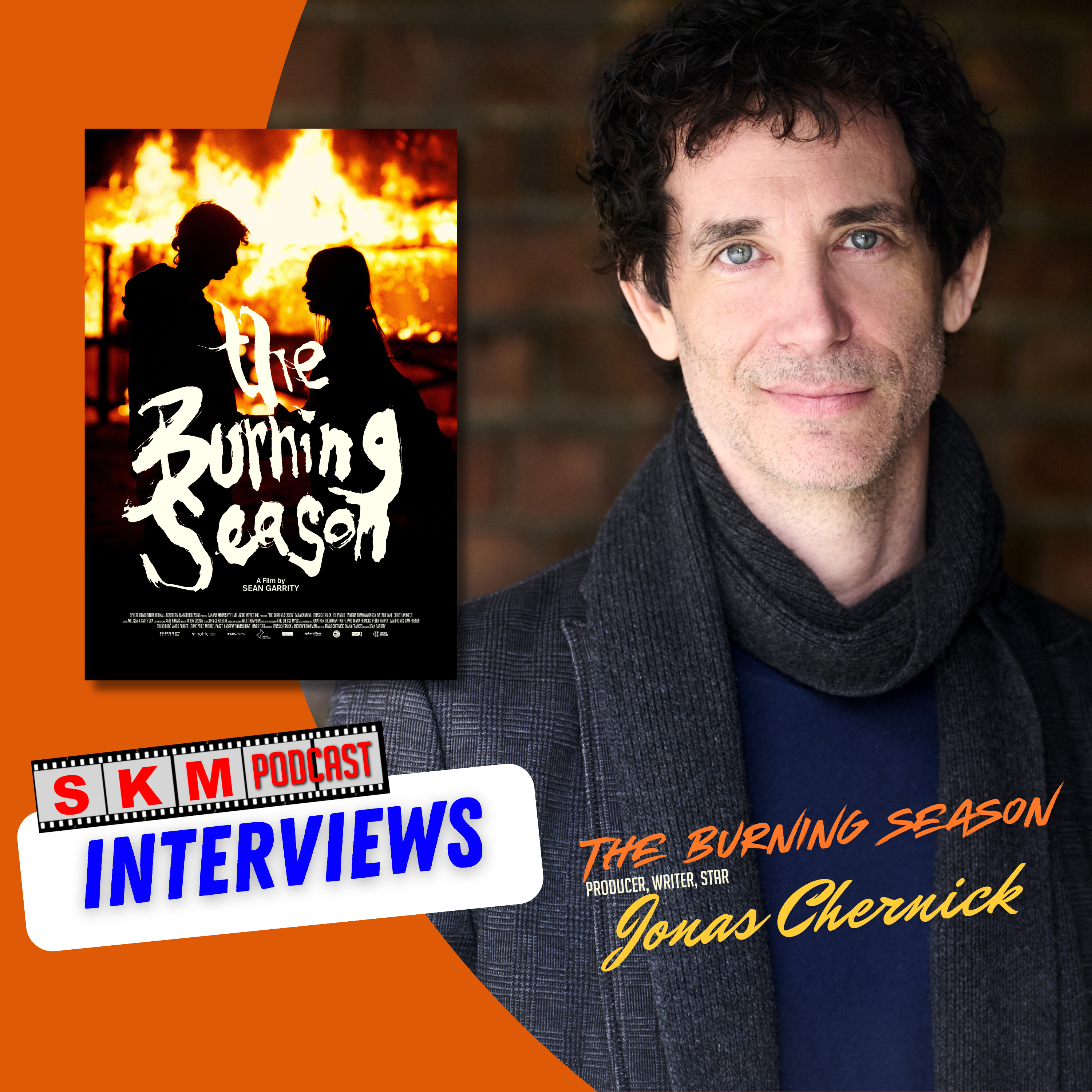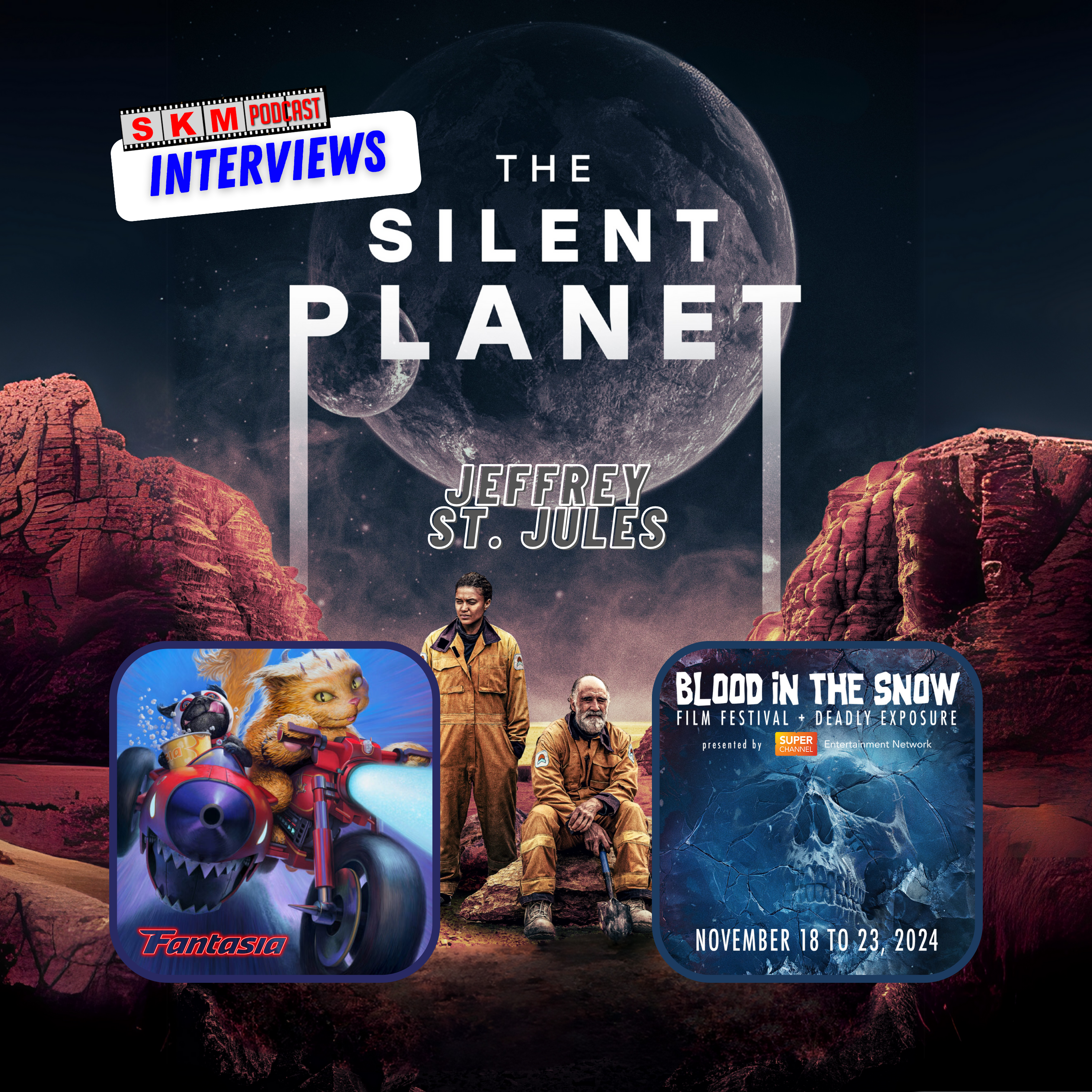Episode Transcript
[00:00:10] Speaker A: This is a Sean Kellyon movies interview with Academy Award winning director Adam Elliott on Memoir of a Snail. Like. And subscribe for more content like this.
So maybe begin by talking about, like, the length it takes to animate one of your films, because memoir coming like 15 years after Mary and Mac.
[00:00:32] Speaker B: Yes. Well, yeah, Sean, I always apologize upfront for my films taking so long. It wasn't meant to take 15 years, but life kept getting in the way. And I won't go into all the details, but certainly there are days I wished I'd chosen a quicker art form, a less expensive art form. But as my mum said, good things take time and I've probably only got a few films left, so I've got to really hurry along, don't I?
[00:01:05] Speaker A: Yeah. Could you talk a bit about your plan for a trilogy of trilogies?
[00:01:09] Speaker B: Sure. Well, look, it was a very pretentious IDEA I had 28 years ago when I was studying at film school in Melbourne, Australia, and I thought, oh, what if I do three short shorts, three long shorts and three features that'll be, that'll fill up my life and then I can die, never thinking that I would actually achieve that. But I'm at. I'm up to number seven now, so, yeah, I've only got two left.
[00:01:37] Speaker A: So how long do you think it would take to get the other two made?
[00:01:41] Speaker B: Well, I'm 52 and, you know, hopefully the next film won't take, you know, this one took eight years from script to screen.
I'm hoping it'll only take three to five.
[00:01:54] Speaker A: So what was the inspiration for the story of Memoir of Us Now?
[00:01:58] Speaker B: Yeah, well, look, about eight years ago, I, you know, my father passed away and left behind a big hoard of stuff that my siblings and I had to trawl through. And I became fascinated with why, as human beings, do we collect stuff? Why do we fill our homes with things we don't need? So I started to read a lot of books into the psychology of extreme hoarding. And the more research I did, the more I found that extreme hoarders have. Have usually suffered a lot of trauma in their life, usually to do with the loss of a child or a sibling or a twin, and that the hoarding becomes this type of coping mechanism. So it was that sort of idea. And also I came across some notes I'd made about a friend of mine who was born with a cleft palate. I was going to make a short film about her life and she'd had a lot of suffering as a child, a lot of Operations on her mouth, had been bullied and teased a lot as a child. And so I found that interesting. So there's sort of two ideas sort of merged together. And over three years, I wrote 16 drafts of the script, and this is what I came up with.
[00:03:04] Speaker A: I noticed your films have a pattern of, like, neurodiverse protagonists of Max having Asperger's, of Grace, suffering from angst and anxiety. So it's just a conscious decision, your part?
[00:03:15] Speaker B: Well, conscious and unconscious because, you know, I just write about the people around me, and a lot of them just happen to be, you know, people on the spectrum or people who are neurodivergent or people who've got, you know, Alzheimer's or Tourette's. You know, I just. I think everybody has something about themselves they at times wish they didn't have. And I think we all are imperfect, if you want to look at it that way. I certainly don't ever use the word disability or. I don't. I don't see my characters as having disabilities. It's more about the exploration of this stupid desire we all have to be perfect and that we should really learn to embrace our imperfections as well as other people's.
But, yeah, I am certainly fascinated by the human mind. I've read a lot of books by Oliver Sacks. I always used to love reading his books into mental illness.
You know, what makes us different? What makes us the same? The human condition.
So, yeah, I've always had the fascination with the human mind, but I've also had a fascination with death. I love.
I love peculiar deaths, funny deaths. You know, I've always loved the work of Woody Allen. I know he's not in favor anymore, but I've always loved his obsession with death. And I think I have an obsession with death, too.
[00:04:46] Speaker A: Well, that kind of brings me to my next question, is that your films are a good example of animation not being purely a children's medium. So what type of audience are you aiming for with Memoir of Us now?
[00:04:59] Speaker B: Oh, great question. Yeah. Well, look, I've never seen, and nor do others see animation as a genre necessarily. It's a medium, and it's a wonderful vehicle to tell any story you want.
And my films are certainly not for little kids. They're for teenagers and up. And, you know, I have a very challenging subject matter at times in my films. I mean, I try and make them as funny as possible as well, but I don't want to offend the audience. But I certainly want to have material that is thought provoking and look, life is really dark at times for all of us. And I just mirror life. And no one's life is ever completely grim. There's always something that brings light and hope and levity.
So, yeah, they're reflections of all our lives. But a lot of the characters are extensions of myself. But there's a lot of myself in the characters and a lot of my personal experience. But they certainly works in fiction. They're not documentaries. And I love that adage, never let this. Never let the truth get in the way of a good story.
[00:06:07] Speaker A: So what do you look for when you're casting your films?
[00:06:11] Speaker B: Good question. Now, it's a very intuitive gut feeling I have when I'm casting. I always look for authenticity and an actor who doesn't have to put on a voice or a character voice. I'm always after just a natural. Their natural speaking voice and a performance that's just very real.
So I'm very conscious too, of not having too many Australian actors whose accent is too thick and broad. So it's important that audiences understand what they're saying. Cause the Australian accent can be a bit hard to understand at times.
So, yeah, certainly, of course, want actors who've got an international profile. That really helps as well. But, you know, I also love. I'm always drawn to actors. Actors, actors that other actors really admire and just have that indescribable essence and that genius. And I think Sarah Snook definitely is one of those actors.
Just has this incredible ease with performing and yet comes up with stuff that is so layered and dimensional.
So, yeah, I certainly.
It's a real challenge to find the actors you want. It's a real challenge to be able to then get them on board and penetrate through the shield of their agents.
But again, I'm lucky. A lot of these actors are Melburnians where I live, and it was easier to access them.
[00:07:43] Speaker A: How did you get Nick Cave to do one line? Pretty much.
[00:07:47] Speaker B: Well, Nick Cave was the last minute, not a last minute decision, but we didn't have to cast him early. We were able to cast his character later on. And I went through a whole list of other celebrities and musicians and sports people and then really, Nick Cave just ticked all the boxes. He gets to read a poem and he's a poet himself, of course.
And yeah, he just has that beautiful voice. And he wanted to do a voice. And I said, no, no, I just want you to be Nick Cave. I don't want you to be anything but Nick.
Yeah. We were so thrilled and delighted that he came on board.
[00:08:26] Speaker A: Okay, well, kind of like going to now ask you a question about, like a part time Torontonian, Guillermo del Toro, who's a huge supporter of stop motion animation. And I was wondering if you were inspired when he won the Oscar a couple years ago for his Pinocchio film. And do you have any hopes that Memoir of a Snail will bring you back to the Oscars 20 years after winning for Harvey Crumpet?
[00:08:53] Speaker B: Well, your guess is as good as mine.
Guillermo, of course, has really done wonderful things for the stop motion community. He's really brought the art form into the forefront as well as Wes Anderson and Henry Salak and Travis Knight at Leica. So I think stop motion's going through a great renaissance at the moment, and I think particularly too, with the advent of AI and there's so much CGI animation out there. And I think audiences are really enjoying stop motion films at the moment because they know that what they're looking at is real and made by human beings. And I think the art form is really appreciated at the moment. Who knows what the future holds? I mean, AI could destroy us all.
I hope not. I think, again, things that are handmade will always be appreciated. And I think, you know, AI will find its place, but I think so will things that are handcrafted.
[00:09:55] Speaker A: Okay, well, that's my time, so thanks.
[00:09:58] Speaker B: Thank you. Such great, great questions too. Thanks very much, Sean. They're great.


